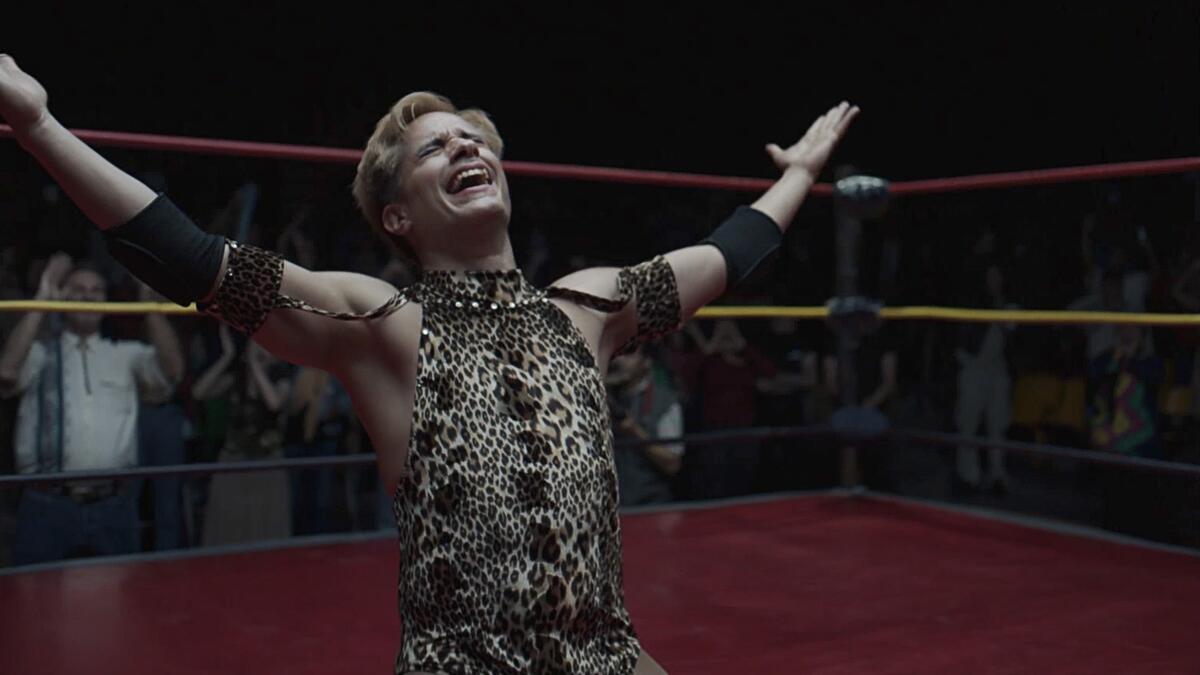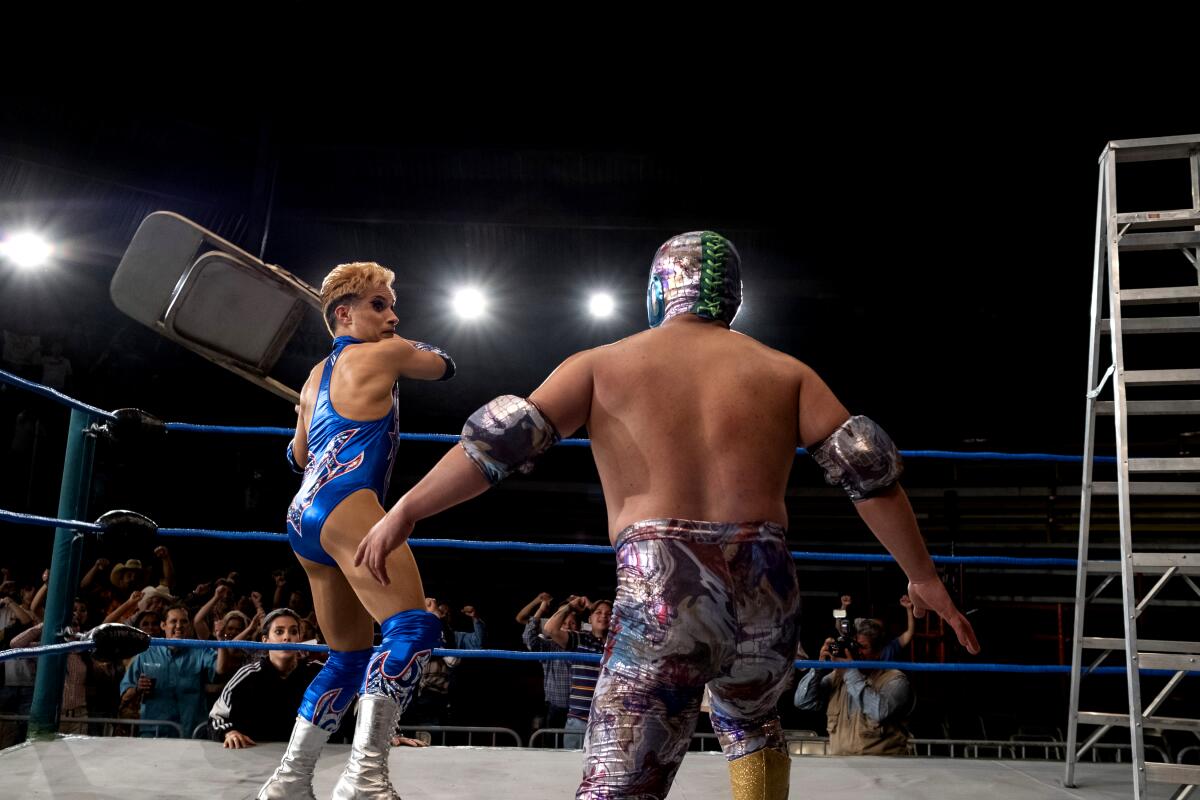Review: In wrestling drama ‘Cassandro,’ a dream escape to a new identity takes a flying leap

- Share via
An aspiring luchador known as El Topo leaves the ring, defeated, having been flattened by a hefty competitor named Gigantico. The camera slowly tracks his exit as the announcer introduces a new wrestler entering the ring, his barrel chest bursting out of a flamenco-inspired costume, sporting a full face of makeup instead of a leather mask. He is Big Beltran, the announcer bellows, “the exotico you love to hate.” El Topo pauses, and takes a second look.
This slippery “love to hate” emotion is the tension at the heart of “Cassandro,” the first narrative feature by Oscar-winning documentarian Roger Ross Williams. The biopic of Mexican American luchador Saúl Armendariz, a.k.a. Cassandro, stars Gael García Bernal in the title role, and it’s an intimate portrait of the man behind the flamboyant exterior, who dove into the hate and turned it into love.
The encounter with Big Beltran is the spark of inspiration that changes Saúl’s fledgling wrestling career. A gay man living with his mother, Yocasta (Perla de la Rosa), in his native El Paso, he decides rather than to mask himself in the ring, he’ll lean into the negative things people say about him, and embrace the queer “exotico” identity. Exoticos, functioning as the “heels” in lucha libre wrestling, never win, but they can be stars, as Big Beltran demonstrates.
Saúl shaves his mustache and hires a trainer (Roberta Colindrez), who helps him pull a fast one on the promoter. He dons a tasteful face of makeup and a pair of hot pants, and the chorus of boos when he enters the ring becomes his superpower, transforming him into the fearless Cassandro. He pops his booty and shimmies; he winks at the crowd and even gets Gigantico to submit. The jeers turn to cheers when Cassandro unlocks that magic moment when hate transforms into love. Perhaps this exotico can win.

Williams brings a sense of verve and style to the wrestling matches as García Bernal, in cat-eye makeup and glitter, bares his teeth and swings a folding chair in slow motion, but never exceeds the scope of the setting. Inside the ring, it may seem epic, but it still looks like a dark and dingy indie wrestling match. When Cassandro reaches the height of stardom, facing off against the legendary luchador Son of Santo (playing himself) in front of a crowd of 22,000 in Mexico City, the lights are brighter, the ring shinier, and Williams inserts shots that look like archival TV footage to emphasize the media reach and stardom that Cassandro has achieved.
But “Cassandro” is less a sports movie than a gritty sketch of a unique American character. His triumphs are compressed in montage or alluded to in conversation, Williams chooses to spend more time in Saúl’s personal life, in his close relationship with his mother and with his closeted boyfriend, Gerardo (Raúl Castillo). His birth and romantic life are ironic mirror images: Saúl is the product of an extra-marital affair, and Gerardo is married with kids. In both situations, Saúl is either abandoned or a secret, which is why his outsize wrestling persona proves to be such a liberation.
Williams resists the tropes of the traditional biopic, which at times leaves us wanting more. Cassandro’s maximalist image invites a big, outlandish treatment, but Williams keeps the tone quiet and grounded, centering García Bernal’s moving performance and keeping the focus on Saúl, the real person behind the celebrity.
It’s a deeply touching and very American story about the way we all attempt to make oneself over, turning the things that seem to be vulnerabilities into strengths. “Cassandro” is a film that invites us to consider the hearts and bodies behind the swagger and sequins, and about the true grit that it requires to be an original.
Katie Walsh is a Tribune News Service film critic.
'Cassandro'
Rating: R, for language, drug use and sexual content
Running time: 1 hour, 46 minutes
Playing: In limited release Sept. 15th; streaming on Prime Video Sept. 22
More to Read
Only good movies
Get the Indie Focus newsletter, Mark Olsen's weekly guide to the world of cinema.
You may occasionally receive promotional content from the Los Angeles Times.










